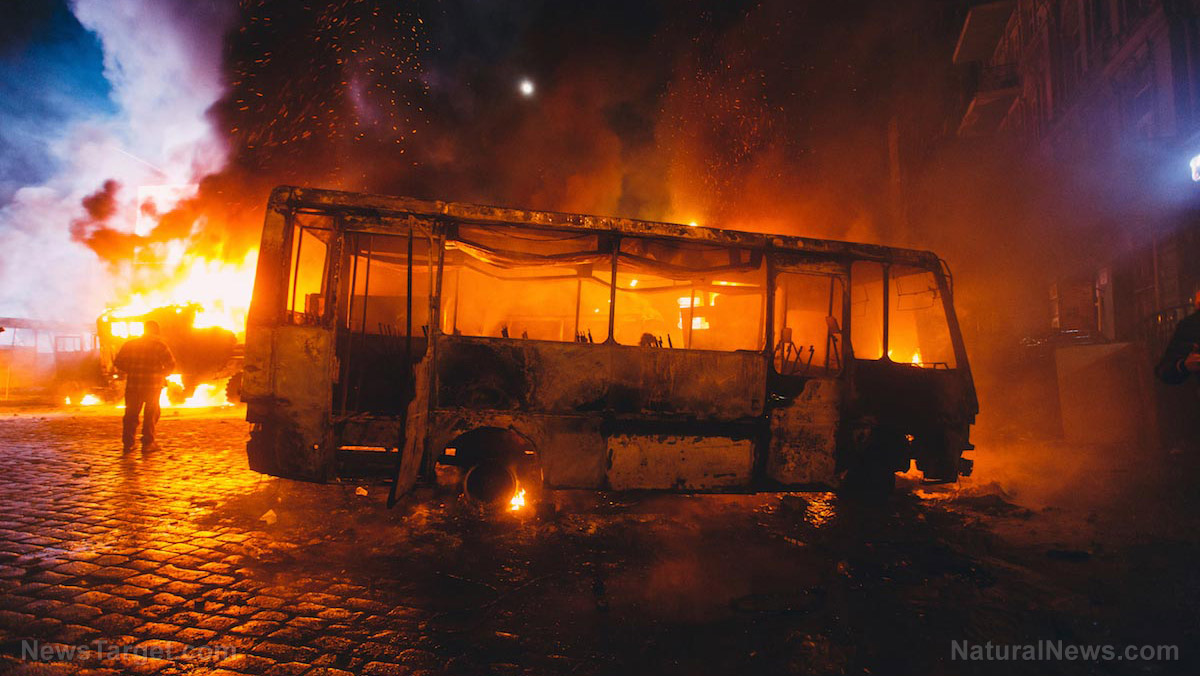
More than a dozen properties that are linked to the climate activist group known as Last Generation were raided by police, who seized assets and bank accounts as they investigate the group's finances.
Munich prosecutors are leading the investigation, which is focused on seven individuals aged 22 to 38 suspected of supporting or forming a criminal organization. A separate investigation was launched last year into actions taken by climate protesters against an Eastern Germany oil refinery. The group is also being investigated for trying to disrupt flights at the Berlin airport and an attack on a $110 million Monet painting at a Potsdam museum using mashed potatoes.
The individuals who are the subject of the investigation have been accused of being part of a campaign to finance criminal offenses; they reportedly collected at least $1.5 million for their cause. In addition, two of those being investigated are suspected of attempting to sabotage an oil pipeline running from Bavaria to Trieste in Italy last year.
As part of the searches, investigators are reportedly looking to obtain evidence related to the group’s membership structure and finances.
Some of the tactics the group has used include blocking roads throughout the country in hopes of pressuring the German government into taking stronger actions to stem climate change. In the past few weeks, they have held up traffic on highways and at busy intersections in Berlin nearly every day.
Chancellor Olaf Scholtz has weighed in on the group, commenting that he believed it was “completely nutty to somehow stick yourself to a painting or on the street."
Leaders in the environment-focused Green Party, who are part of Scholtz's governing coalition, have also spoken out against the group, saying their approach is counterproductive.
The group appears to be undeterred by the raids, however.
“They make us afraid, but we must not be frozen by fear,” Last Generation spokesperson Aimee van Baalen told the media. “The German government is right now driving us toward climate hell with its eyes wide open. It is even stepping on the gas pedal. We must continue to resist now, because we need to loudly demand that lives be protected.”
She also took the opportunity to implore the public to support marches they have planned for German cities like Berlin in the near future. Although the group admits that its protests may be provocative, they believe that this is the best way to keep the topic of climate change on people's minds and part of the public discourse.
Germany’s Interior Minister, Nancy Faeser, said that police registered 1,600 criminal complaints related to climate protests last year, many of which took place during Last Generation’s road blockades.
UK also takes steps to address criminal activity by climate activists
The UK is also taking steps to address unruly behavior by climate activists, giving police in England and Wales new powers when dealing with protestors.
For example, any protestors who lock themselves to buildings, objects or each other can now face as much as six months in prison, while interfering with refineries, railways or airports could be punished by up to a year in jail.
The way British authorities have responded to these types of crimes so far has been inconsistent. A pair of men who placed a huge banner that caused a bridge on the River Thames to be closed for more than 40 hours were handed sentences of 2.5 years in prison, while activists from a group called Just Stop Oil who stormed the race track during the Formula 1 race in England were spared time behind bars.
Just Stop Oil is part of the international network of climate activists known as A22, which also includes Germany’s Last Generation.
Sources for this article include:
Please contact us for more information.























